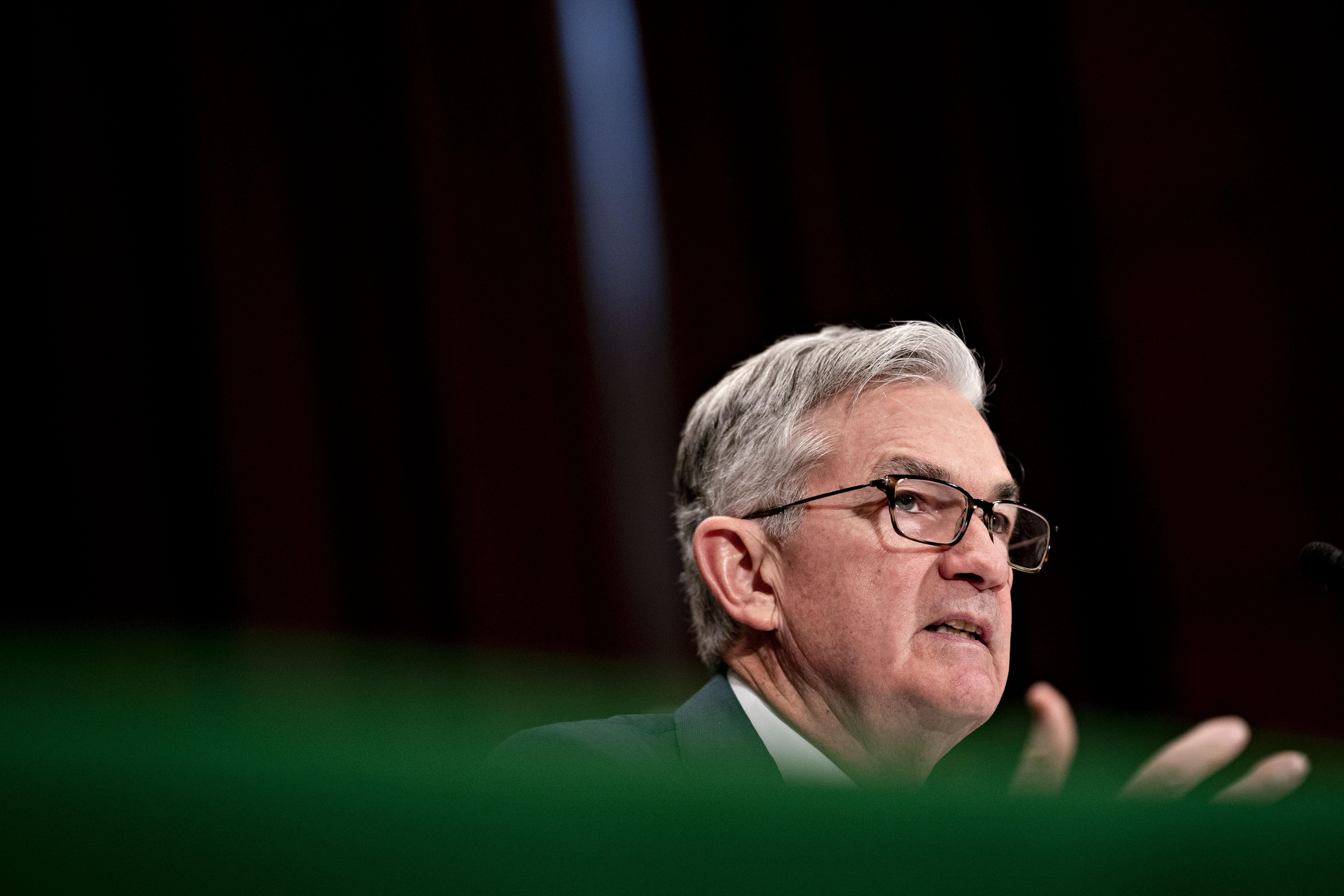Governments and central banks are launching stimulus programmes and cutting interest rates in response to coronavirus battered markets. Is it enough, and what can stock market traders and investors do to protect themselves from risk?
It’s been the worst period for global stock markets in decades. Growing panic over the spread and intensity of the coronavirus pandemic, a US travel ban on European flights and falling oil prices has seen share prices plunge at alarming rates.
By the end of the week, US stock markets, tracked by the Dow Jones Industrial Average for example, had entered bear territory. The Dow Jones index plummeted from its 12 February peak of $29,551.42 to end last week (13 March) at $23,185.62 — a 21.5% drop. It then dropped further over the weekend to close at $20,188.52 on Monday.
21.5%
The Dow Jones index drop between 12 Feb and 13 March
The UK stock market has also been rocked by fears that the globe is heading into recession. By Monday the FTSE 100 was 31% down on its most recent high experienced in mid-January. Last Thursday (12 March) the FTSE 100 index slumped 10.87% —its biggest one-day crash since 1987.
The Bank of England took swift action to help protect stock markets and the wider economy by cutting interest rates from 0.75% to 0.25%. The government budget, set last week, also included a £30bn stimulus package to combat coronavirus.
What next?
Simon Wells, chief European economist at HSBC, predicts rates will fall further to 0.1% at the Bank’s next policy meeting on 26 March. Jerome Powell, chairman of the US Federal Reserve — which cut its rates to between 1% and 1.25% from between 1.5% and 1.75% in early March — announced that the Fed was dropping its benchmark interest rate to almost 0% on Monday (16 March) to help the US economy endure through the coronavirus pandemic
The European Central Bank maintained its rate level at -0.5% but expanded its quantitative easing programme by an additional £106bn in asset purchases this week.
“Rates are in negative territory in Europe and it is difficult for the ECB to cut them further,” Frédérique Carrier, head of investment strategy at RBC Wealth Management tells Opto. “Although the rate cuts are helpful for market confidence, more action is needed in fiscal policy such as the stimulus programmes announced by the Italian and UK governments.”
What does this mean for investors?
In a typical low interest rate environment firms that carry high levels of debt on their balance sheets, such as utilities companies, like National Grid [NG], as well as telecoms firms, may see a boost, according to the Motley Fool. It will also be easier for businesses to fund new projects.
Russ Mould, investment director at AJ Bell thinks low rates can benefit banks such as Lloyds [LLOY], which have the greatest exposure to the mortgage market. “The rate cut may give some succour to borrowers, especially those who encounter any cash flow problems thanks to the coronavirus outbreak, but perversely it may do as much long-term harm to lenders as it does good,” he says.
“The rate cut may give some succour to borrowers, especially those who encounter any cash flow problems thanks to the coronavirus outbreak, but perversely it may do as much long-term harm to lenders as it does good” - Russ Mould, investment director at AJ Bell
“At its core, banking is simple stuff. A bank raises funds at one interest rate and then lends that money out at a higher rate. The difference between the rate at which funds are obtained and loaned is the all-important net interest margin and the core to many banks’ profits.”
The long-term view
Looking further ahead, Carrier explains that she is telling RBC clients that if the US avoids a recession, then equities should recover to end the year ahead.
“Our assumption is that there will be a significant virus impact in the first half of the year. This will lead to one quarter of negative growth,” she states, however she says this is dependent on if fiscal, health and monetary policies working to contain it.
“Our assumption is that there will be a significant virus impact in the first half of the year. This will lead to one quarter of negative growth” - Frédérique Carrier, head of investment strategy at RBC Wealth Management
“The market uncertainty is very difficult for our clients to stomach. It is uncomfortable for them, but this does not appear systemic at this stage.”
Carrier says that RBC Wealth Management watches the credit markets closely but notes that prior to the outbreak in the US, UK and European economies were strengthening. “If this is a growth scare not a recession, there should be limited downside. However, we remain vigilant of any changes to this scenario.”
Nigel Green, chief executive and founder of deVere Group, takes this point further, highlighting that some investors will “make a fortune” as a result of the crash.
“We've seen all assets, even safe-haven ones such as gold and Treasuries, being shed in order to shore up cash reserves to meet margin requirements. But it was a temporary phenomenon,” he says.
“Whilst some volatility will remain, as no-one can truly know where the bottom is due to the unpredictability of this public health crisis, the global sell-off will ease as central banks roll-out liquidity measures."
“Whilst some volatility will remain, as no-one can truly know where the bottom is due to the unpredictability of this public health crisis, the global sell-off will ease as central banks roll-out liquidity measures” - Nigel Green, chief executive and founder of deVere Group
He explains that mis-pricing and panic buying can be caused by fluctuations.
“Sought-after stocks can then become cheaper, meaning investors can top up their portfolios and or take advantage of lower entry points. This all typically results in better returns.”
Continue reading for FREE
- Includes free newsletter updates, unsubscribe anytime. Privacy policy





